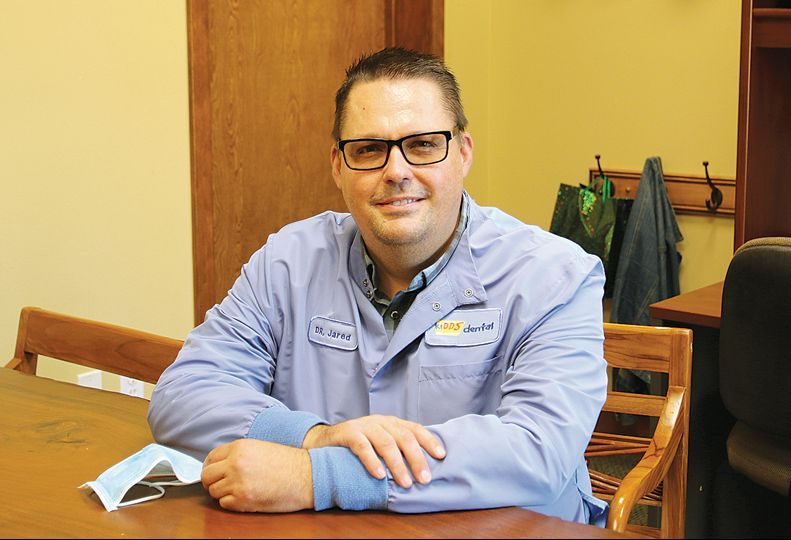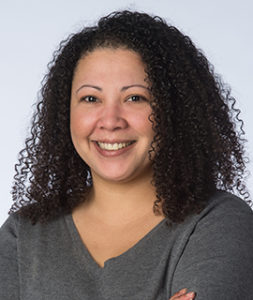Dental clinics urge patients to resume routine care
Fear of COVID spread shouldn't delay treatment

Patients shouldn’t put off their routine dentist appointments due to fears about exposure to COVID-19, some providers here say.
“The dental office is one of the safest places to be,” asserts Dr. Stephen Davis, corporate dental officer for Toppenish, Washington-based Yakima Valley Farm Workers Clinic, which operates the Unify Community Health dental clinic at the Northeast Community Center, at 4001 N. Cook, in Spokane.
Dr. Jared Evans, owner and pediatric dentist at J. Evans DMD PS, which does business as KiDDS Dental, in Liberty Lake, says that before the pandemic began, dentists practiced universal precautions in which they treated everybody as if they were infected with communicable illness anyway, so the clinic’s staff was familiar with proper methods to keep the spread of disease down.
Even with established sanitation procedures already in place, Evans says he and his staff have implemented additional safety measures that include screening patients before they enter the building for an appointment, increased surface cleaning, additional personal protective equipment for staff, and allowing dental chairs to air out between patients.
“We already had a lot of precautionary measures in place. Once COVID started, we just learned we needed to screen people more effectively,” says Evans.
At Unify Community Health, which provides dental care for children, teens, and adults, Davis agrees that screening patients for symptoms of an illness, robust cleaning protocols, and additional PPE for doctors, are all measures that reduce the chance of transmission within the office.
Evans says that prior to the pandemic, some patients at KiDDS Dental who felt sick would still come to the office for their dental appointments, but now, “even patients are more aware that if they’re sick, they shouldn’t be here.”
Employees at KiDDS Dental also have patients check in by cellphone before they come inside the office, which is located at 1327 N. Stanford Lane, across a parking lot from the MultiCare Rockwood Liberty Lake Family Medicine and Urgent Care clinic, in the Liberty Park Commons business park.
Patients are directed to answer screening questions on their phones, and once inside, they can expect to have their temperature taken before heading straight to the treatment area, instead of staying in a waiting room or the reception area.
Davis explains that the sanitation protocols at Unify’s dental clinic were the same before and after the pandemic began as well, with the one big difference being the amount of personal protective equipment that dentists now wear.
Davis says, “The sanitation protocols were the same before and after, which is what’s kind of standard care for all dental practices.” Davis adds that the dentists were wearing surgical masks and goggles before the pandemic and have started wearing full-face shields as well.
Davis says Unify also protects against the spread of COVID by offering same-day rapid testing for patients who will be undergoing a longer dental procedure and monitors the air flow and filters inside the clinic.
KiDDS Dental is an 8,000-square-foot open plan pediatric dental office with 17 chairs, of which only eight are in use at any one time, Evans says.
“Our approach has definitely changed to make sure there’s no needless surface touching and there’s increased cleaning of all surfaces,” Evans says. “We used to have video games (children) could play with, but now we don’t want them touching that. But we have an interactive floor video game so kids don’t have to touch, they can play on the floor,” Evans explains. The floor video game is on a big mat on the ground operated with children’s feet instead of their hands.
Both KiDDS Dental and Unify Community Health dental clinics were closed for regular procedures from March 2020 to that May but remained open for emergencies. Evans and Davis both agree that their clinics are currently safe to visit, but patients should be concerned about maintaining routine exams to keep on top of their health.
At Unify Community Health, Davis says the dental clinic has been emphasizing prevention to take care of issues before they become a larger, more costly problem. “Because of the time we were not able to see patients, it did kind of put their own health care at risk,” says Davis. “It’s really critical, not just in the dental field, but in health care, to make sure you’re keeping those preventative visits.”
Evans adds, “If you have dental cavities, that’s a progressive disease, so for people that had them and deferred or didn’t come, their condition worsened and now they need more work.”
Exam and insurance cycles are also irregular because of the pandemic shutdown as well. “Our schedule probably won’t become more regular with routine exams for probably another two or three years,” he says.
KiDDS Dental’s revenue decreased due to the shutdown in 2020 compared to 2019, which ranged between $500,000 and $1 million in revenue, says Evans.
He also says some employees were afraid to return to work when the clinic reopened for routine care. His clinic lost two hygienists, two dental assistants, and one front-desk receptionist at the onset of the pandemic. Those employees since have been replaced, and business has rebounded to pre-pandemic levels. “The capacity is down, the costs are higher, but the work never went away,” Evans says.
Davis, at Unify, says the Spokane dental clinic is back to a full level of service because of the protective measures implemented at the clinic. “Spokane especially is a very busy practice, so our providers are all at full capacity. We’re able to get back to a routine care for these patients that really need it,” Davis says.
Evans says, “Change can be good if you reflect. I see the way care delivery and the way we’re aware of safety has improved and we wouldn’t go back. We’re not going back to what we did before. We’ve seen that’s a better way and that’s healthier.”
Like this story?
You’ll love the rest. Subscribe today, and you’ll receive a year’s subscription to the Journal of Business, unlimited access to this website, daily business news emails, and weekly industry-specific
e-newsletters. Click here for 50% off your first year.
Related Articles
Related Products





